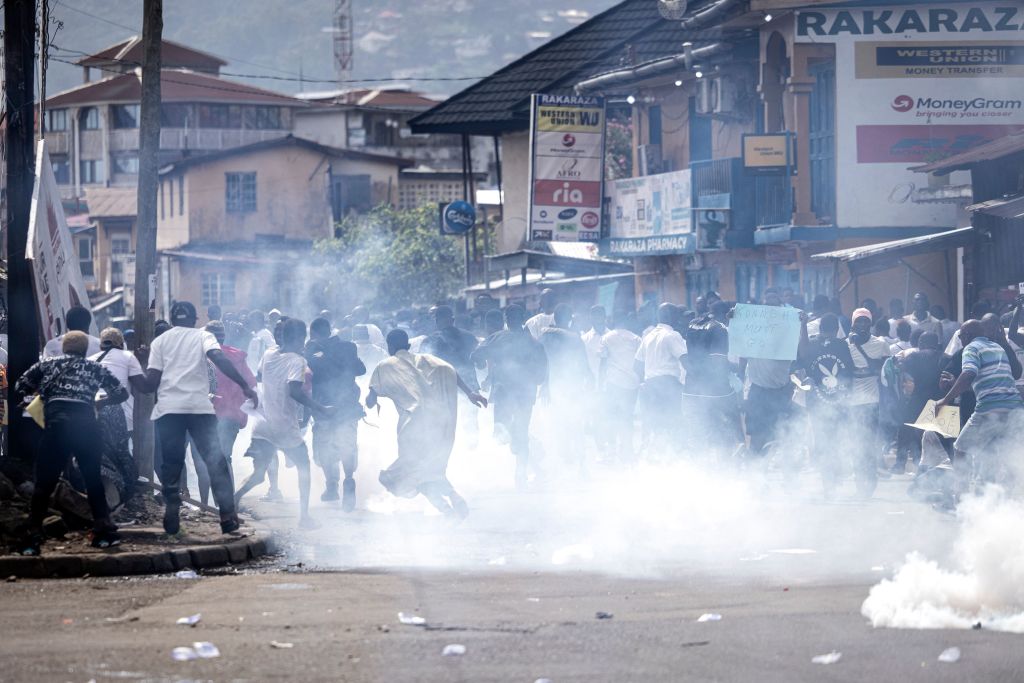ADF STAFF
The 2023 ENACT Organized Crime Index for Africa explicitly links armed conflict and a lack of democratic institutions to an increase in organized crime.
The report, authored by the Global Initiative Against Transnational Organized Crime (GI-TOC) and funded by the European Union, was released in late November. It showed that criminal markets, such as human trafficking and weapons trafficking, have increased around the continent over the past five years.
Although there was a modest increase in resilience to crime from 2021 to 2023, the continent still had the lowest resilience levels globally, the report found.
“The results are a bit sobering,” Mark Shaw, director of the GI-TOC, said during the report’s launch in Kenya. “Year in and year out, there has been an increase in criminality across the African continent. We would love to show the opposite, but the data, unfortunately, does not show that.”
Overall, 88% of the continent has a low resilience to crime.
“One of the key findings the experts found as they evaluated the countries is that conflict and instability play a significant role in driving criminality in Africa,” Rumbi Matamba, a GI-TOC analyst, said while presenting the report.
Ongoing conflict in Mozambique’s Cabo Delgado province, for example, “has created fertile ground for the expansion of many illicit economies, such as the drug trade,” the report found.
Human trafficking is the most pervasive criminal market on the continent, and its prevalence and growth is closely linked to increased conflict.
The continuing rise of human trafficking “led to conditions that include forced displacement, modern forms of slavery, forced recruitment of child soldiers, and disruptions in social and familial structures,” Matamba said.
Conflict and instability help finance illicit markets, “but it also renders societies more vulnerable and gives rise to other illicit practices,” she added.
Some of the countries with the highest rates of crime, such as the Democratic Republic of the Congo (DRC), Kenya, Libya and Nigeria, all experienced conflict in 2022, according to Armed Conflict Location & Event Data Project (ACLED) information used in the report.
Kenya and Nigeria experienced an increase in violence surrounding elections in 2022 and 2023, respectively. Those countries also had the highest number of violent events targeting civilians, including armed insurgencies, gang warfare, banditry and mob violence, according to ACLED.
Democracies such as Botswana, Cabo Verde and Mauritius were found to have higher resilience to crime than authoritarian states, according to 2022 Economist Intelligence Unit findings and the new ENACT index.
“The relationship between democracy and resilience is relatively straightforward to establish,” Matamba said. “That is because countries characterized as democracies are equipped with effective rule of law with robust accountability mechanisms, as well as vibrant civil societies.”
Financial crimes, including fraud, tax evasion, embezzlement and the misuse of public funds, were the second-largest criminal market, the ENACT report found.
Resilience levels in Central Africa and West Africa improved between 2021 and 2023, due largely to greater international cooperation to counter the growth of illicit markets.
Southern Africa’s resilience decreased this year due to a decline in economic and anti-money laundering regulatory capabilities.
East Africa’s resilience also declined slightly from 2021 to 2023, due mostly to ongoing instability. Countries such as Eritrea, Somalia and South Sudan were among the least crime-resilient areas on the continent.
Resilience declined the most in North Africa, where countries such as Libya also continued to endure conflict, the report found.
Most responses to organized crime focus on enacting laws, ratifying international instruments, politically driven campaigns and national strategies. The report argues that “softer” measures, such as prevention, victim and witness support, and nonstate actor initiatives are more effective.
“Engagement with a robust and active civil society is also needed to bolster resilience at [the] community level,” the report said.

